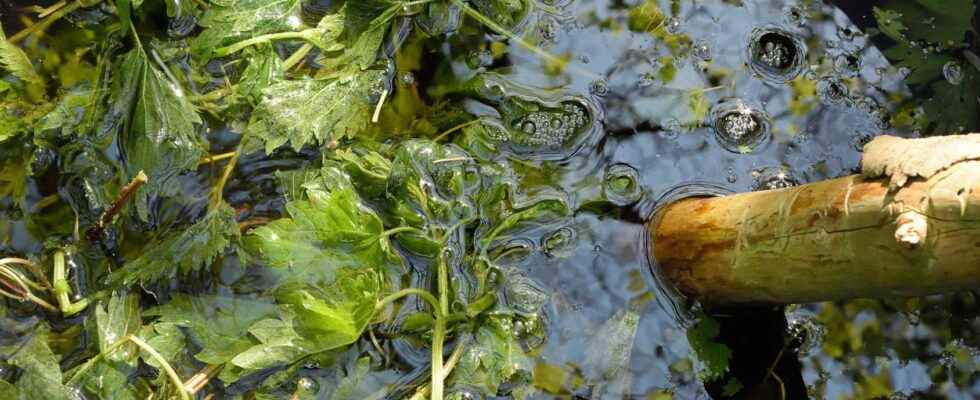Very close to the preparation of liquid manure, the maceration requires less manufacturing time. How? ‘Or’ What, from plantsmanufacture natural extracts not to use pesticides. Get into the habit of making these economical and ecological remedies to fight against pests, diseases or scourges in the garden.
The 7 tips for making a top maceration
Simple to perform, here are some valuable tips to know before starting a plant maceration:
- prefer rain or spring water and not tap water which is limestone and chlorinated. The anti-chlorine treatment risks compromising the bacteria necessary for a fermentationas well as limestone.
- the water should be at room temperature, between 16 and 20°C, neither cold nor hot. In summer, the preparation will be put in the shade so as not to stop the activity of the microorganisms with the heat.
- avoid metal containers but prefer the plasticglass, terracotta orstainless steel.
- macerations, unlike slurry, do not keep for long. This is why they are made in small quantities to use them quickly.
- macerations are used pure in 80% of cases. Research well before using them in the garden.
- plants can be soaked in water or preferably olive oil (or rapeseed).
- the fermentation time ranges from 24 to 48 hours only. If you forget a magic potion of nettle in a corner, you will get a manure or fermented extract (8 to 10 days) and not a maceration (48 hours).
Make a maceration of plants, why?
In order to benefit from a maximum of the properties of plants to heal or protect plants, macerations are the simplest and quickest preparations to make. They only require water at room temperature and a period of time between 24 and 48 hours, unlike manure which must ferment between 5 and 15 days. You will get the most out of it. active subtances.
Which plants to use to create a plant maceration?
As for sewage and infusions plants, the list of plants is long. Here are some known examples:
- the fern to fight slugs, aphids and wireworms;
- chilli against aphids and mites;
- sage to stop the mildew which settles on potatoes;
- the rhubarb to make an insect repellent;
- L’garlic to fight against the nail of the peach tree, the gray rot of the strawberry or to hunt aphids and other mites;
- L’nettle which will repel aphids and other mites;
- yarrow which will stimulate the natural defenses of plants;
- L’onion which will serve as an insect repellent and many others.
When to spray a plant maceration?
Always avoid the middle of a sunny day. Prefer the morning or the evening, if you do not want the sprays to burn the plants. In case of wind or rain, postpone theapplication on the next day.
You will also be interested
[EN VIDÉO] Take advantage of new technologies for agriculture “Smart farming” or precision agriculture is developing in Europe to enable farmers to produce better and thus increase their income. Farms are modernizing through the use of new technologies, what will they look like in the future?
Interested in what you just read?
